Between 1 and 20 June 2020 TLP standing group is having elections for its Steering Committee. The following members are standing as candidates (presented in alphabetical order of first names):
|
Masaryk University
|
Agnes Simon gained experience at both American and European higher education institutions, currently working at the Pedagogical Competence Center (CERPEK) of Masaryk University. She is a regular instructor in the ECPR Teaching and Learning Summer School organized by the TLP, which she feels very passionate about. Therefore, if elected, I will advance the cause of the Teaching and Learning Summer School by upholding its high standards while keeping it fresh and relevant. I find it important that it gains further recognition both in Europe and beyond and will work toward it. Second, I would like to initiate a one-on-one mentoring program for junior political science teachers interested in advancing their competencies via publishing about their teaching. I envision this as a voluntary collegial enterprise where a senior colleague guides the less experienced partner via series of professional exchanges. |
|
|
|
|
|
|
Hertie School Berlin
|
I am an experienced education professional with a background in political science. I worked as a learning experience designer at the IES Brussels and went on to lead the Centre for Teaching Innovations at the Hertie School of Governance in Berlin. My career over the past 13 years has given me an in-depth understanding of e-learning, curriculum design and innovative teaching strategies. This was also the topic of my PhD in which I analysed the role of technology in teaching politics at European universities. |
|
|
|
|
|
|
De Montfort University
|
My name is Alistair Jones I am an Associate Professor in Politics and a University Teacher Fellow at De Montfort University in Leicester, UK. I have around thirty years teaching experience in a range of different countries, including New Zealand, China, Czech Republic and the UK. My area of interest centres around the teaching of politics to non-politics students. This was the theme of a panel I organised at the ECPR conference in Wrocław in 2019. It is not just about the teaching: it is about engaging with the students and trying to develop their interest in the subject matter. This can be carried out through different forms of classroom experiences and through a variety of forms of assessments. In these, I have tried to experiment, and it is something about which I am very keen to encourage, and for others to do similar. |
|
|
|
|
|
|
University of Amsterdam
|
Three themes are central to make teaching into a success: creativeness, openness and scope. Creativity means being able to use different forms of knowledge transfer. It is about discovering tools to stimulate active learning and actively applying them. Openness is about creating the circumstances needed to establish vivid discussions and conversations that allow for constructive interaction between teacher and student. It is about safety and encouragement and about revealing the value of exchanging ideas. Scope is about estimating your room for manoeuvre as a lecturer. What can you achieve with different groups of students, in different stages of the study programme, and in courses that aim to achieve different kinds of objectives? These three themes need continuous attention and particularly in times in which education is under pressure. It is my ambition to safeguard the attention for these themes by updating our knowledge, learning from each other’s practices and continue to exchange experiences. |
|
|
University of London
|
Hello. My name is Dale Mineshima-Lowe and I’m based in the Department of Politics at Birkbeck, University of London. I’m standing to serve as a steering committee member for our Group as I am very interested in pedagogy, methods and apps for teaching and learning. If selected to serve on the steering committee, I would work to continue the work of the steering committee has already accomplished and building on this further. In particular, my thought is for a dedicated T&L twitter account where members would be able to share resources, provide quick advice as sought and generally to further nurture the ‘Community of Learning’ that our Group’s website and conferences create and provide a means for ongoing discussion among members. |
|
|
University of Amsterdam
|
I have a PhD in Educational Sciences for which I intensively collaborated with Political Science scholars. My research focused on student learning in role-play simulations of political decision-making. At the moment, I am a guest professor at the University of Antwerp (B). I also have a postdoc position at the University of Amsterdam (NL), which resulted in broadening my research agenda to experiential learning in general and also to law teaching. As a member of the steering committee I would certainly continue the good work of the current committee. I would bring in expertise and a large network in the field of educational sciences. I genuinely believe in the value of interdisciplinary collaboration. I am always in for new ideas, however, not into change for the sake of change. As a steering member, I’d be happy to facilitate access to various learning opportunities. Let’s make political science education future-proof together! |
|
|
Masaryk University
|
Dear TLP members, my name is Jana Urbanovská and I am an assistant professor at Masaryk University, Czech Republic. My areas of expertise include German foreign policy and EU security and defence policy. As a member of the Pedagogical Competence Development Centre at Masaryk University, I was pleased to be part of the exciting endeavour to increase the pedagogical competence of university educators. Taking a bottom-up approach, I have been actively promoting the idea of constant development of teaching competencies. Sharing positive and less pleasant experiences with teaching and learning among colleagues and inspiring each other in a friendly and encouraging way is an important part of the internationalization process. If elected to the Steering Committee, I would do my best to disseminate the best practices of teaching and learning politics in Central Europe and beyond and to engage junior and senior academics in searching for the right balance between teaching and researching. |
|
|
University of Liverpool
|
As an ECR, I know just how piecemeal current support is for academics – and this was before the current crisis. COVID-19 will fundamentally change how we teach politics – and the social sciences more broadly – and this standing group has the opportunity to be at the forefront of sharing and developing new knowledge, new methods, and new understandings of how to address that challenge. Only by building on the work of each other can we support our students and the next generation of political scientists, and I want to do my bit to help. I am a firm believer in using a variety of methods to teach politics. I won the University of Liverpool’s prize for the Greatest Contribution to the Student Experience for my ‘Politics in Action placement scheme’, and I would look to support other innovate methods of teaching and learning, and new ways to share best practice. |
|
|
Rhine-Waal University of Applied Sciences
|
As a lecturer in International Relations with more than 50% international students in my courses, I would like to explore more possibilities of how to make the most of such an environment for everyone involved. During my work in civic education I observed that we often neglect the resources participants themselves can potentially contribute to the teaching and learning experience (different generations/nationalities living through various regimes for example). While completing a certificate of teaching in higher education, I realized that much more needs to be done, particularly when addressing the question of what is being offered to whom. An ongoing topic for the Standing Group! Those who are enthusiastic and care about what and how they teach are not only the most inspiring teachers, but also the best colleagues to work with and can be found in the TLP Standing Group, which I would like to become more active in. |
|
|
Central European University
|
The way we teach and learn is bound to change following the heroic efforts of colleges and universities to keep providing education in the face of unprecedented challenges. Online teaching and blended learning will be key features of the new normal and it is safe to predict that many of us will be required to rethink our teaching philosophies and technologies. Our ECPR Standing Group can play an important role in this transformation and I would be proud to be part of such a process as a member of the TLP Steering Committee. I have always had a keen interest in curriculum development, course design, alternative modes of assessment, and learning from colleagues. I have published about my experience with project-based courses on deliberative democracy in Germany and South Africa and I am excited about my first experiment with an “inverted” or “flipped” classroom format at CEU Vienna this fall. |
|
|
University of York
|
I wish to stand for the steering committee of the ECPR Teaching and Learning Steering Group to bring my experience and positive vision forward. As a Graduate Teaching Assistant, a group who regularly gets called upon to shoulder teaching it is important to have us on the committee. I would aim to hold events for GTAs to share best practice and bring the innovative ideas that they are contributing on the ground to the fore. I would also aim to hold events with academic societies and focus on collaborative methods of developing teaching and learning not just from the provider’s side but also from the student side as well. As someone who is both in the position of being a student and a seminar leader I would bring both sides to the equation and ensure our committee reaches out and our events are inclusive and provide the best discussion. |
|
|
|
I am an ECA at De Montford University in Leicester, United Kingdom. My specialisms intersect across the politics of gender, race, and social injustices. My research interests also include academic diversity and inclusivity challenges faced by minority groups within HE. I am prepared for this position after my experience (2018–2020) as a Co-convenor for the Women in Politics Specialist Group for the UK’s PSA. My passion for this position steams from my research on Diversity in European Political Science (2020) identifying the lack of data on race within EPS. My proposed priorities are 1. to lead a conversation on diversity and inclusion. 2. to explore examples of best practice as part of a universal teacher training tool. 3. to establish a pedagogy inclusive of difference. Addressing these priorities would bring a positive change in generating an inclusive learning experiences for both staff and students. |
|
|
IES Brussels
|
My formal involvement with the TLP Standing Group goes back to 2017 when I was elected for my first term, but informally I have been engaging with some of its activities long before that. I have seen the Standing Group growing from a collective of like-minded teaching enthusiasts to more than 250 members, and with this, the range of activities it endorses. Hopefully I have contributed to it. I co-organise the European Teaching and Learning Conference – EuroTLC since 2016, and I had the honor to be Section Chair for the ECPR General Conference on two occasions during this first term. I stand for re-election on the grounds of continuing and consolidating our core activities (the conference, the section, joint events, the summer school) and on exploring new educational avenues for our vibrant teaching and learning community, particularly focusing on digitalization of education, internationalization and responding to current challenges. |
|

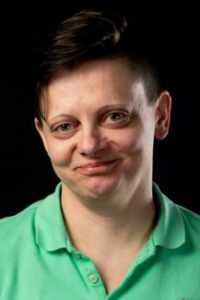 Agnes Simon
Agnes Simon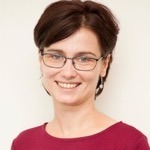 Alexandra Mihai
Alexandra Mihai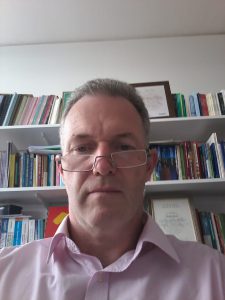 Alistair Jones
Alistair Jones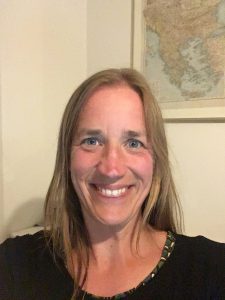 Claske Vos
Claske Vos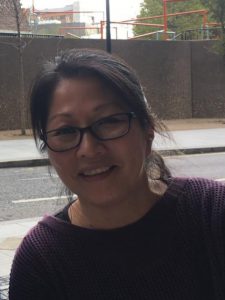 Dale Mineshima-Lowe
Dale Mineshima-Lowe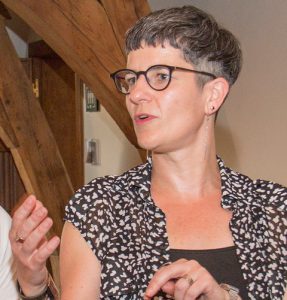 Dorothy Duchatelet
Dorothy Duchatelet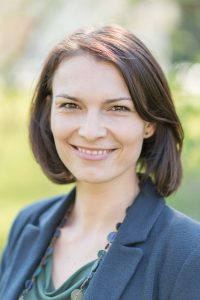 Jana Urbanovská
Jana Urbanovská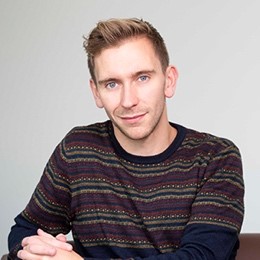 Jeffery David
Jeffery David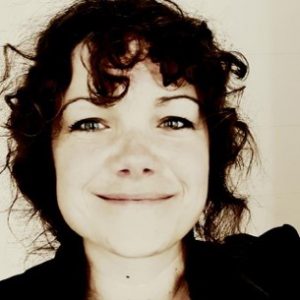 Katharina McLarren
Katharina McLarren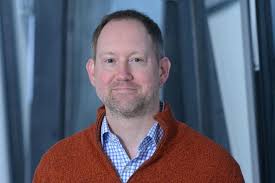 Matthijs Bogaards
Matthijs Bogaards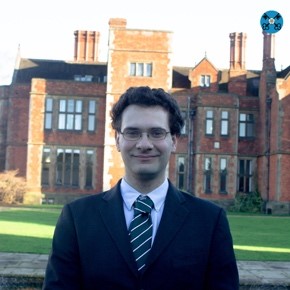 Thomas Ron
Thomas Ron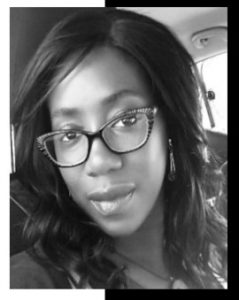 Shardia Briscoe-Palmer
Shardia Briscoe-Palmer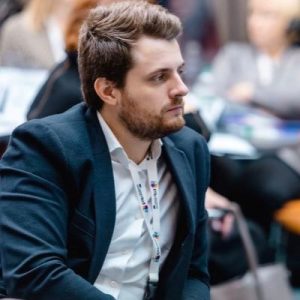 Silviu Piros
Silviu Piros